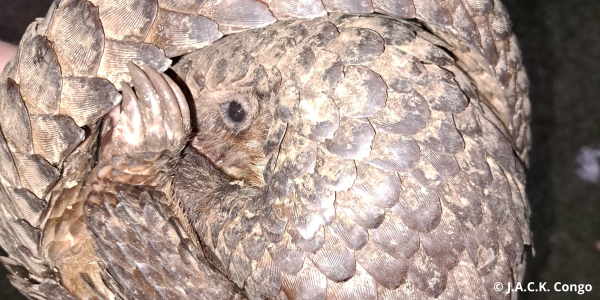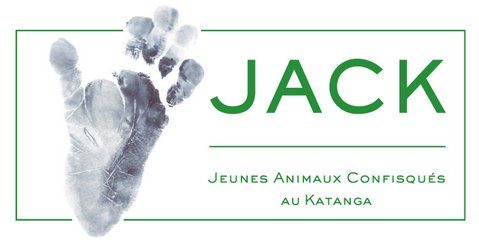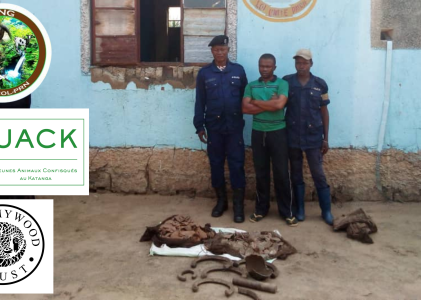On 12 September 2022, WOTSHAKOY SOMBO COSMAS, a trafficker of giant pangolin scales, was arrested after transnational criminal identified him as trafficking scales. The investigations were led by state agencies and their private partners. The arrest came through a well-coordinated operation that was carried out in a village near Lomami National Park in the Democratic Republic of Congo.
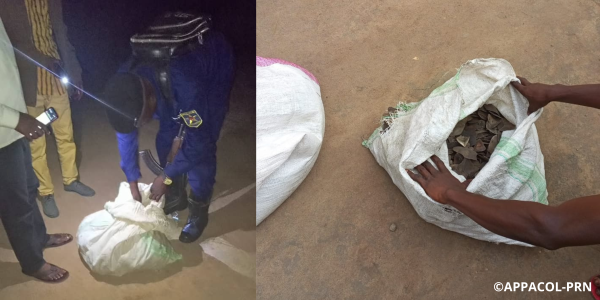
This collaboration was assisted by APPACOL-PRN, J.A.C.K. and TIKKI HYWOOD FOUNDATION. Following the arrest, the trafficker WOTSHAKOY SOMBO COSMAS was immediately transferred to Lodja Central Prison pending trial for contravening the DRC wildlife law against illicit trade in and poaching of endangered species.
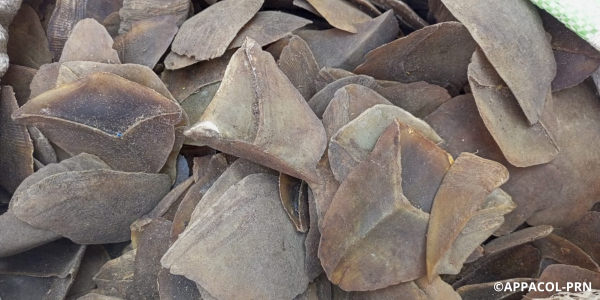
After a long battle of judicial follow-ups by concerned private actors and state agencies, the accused WOTSHAKOY SOMBO COSMAS was tried on 24th May 2023, found guilty and sentenced to 2 years penal servitude, coupled with a fine of 2,500 USD. The man is considered a key player in illegal trafficking and poaching of protected wildlife species in this part of the DRC.
This case of illegal wildlife trafficking of giant pangolin scales, where the accused has been sentenced under the laws of the DRC, will hopefully be seen as a présidence for other wildlife trafficking and poaching cases. This case has lead to a better understanding of how the IWT arena is changing and how laws need to be addressed and implimented going forward in order to effectivily mitigate wildllife trafficking cases.
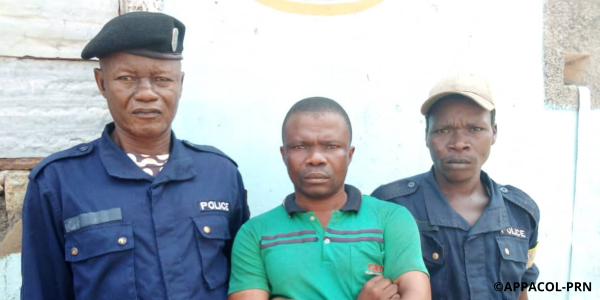
It is the first time anyone in the DRC has been convicted of such an offence despite the fact that such offences are considered rampant in the vast central African country considered very rich in natural resources and wildlife species. Despite, the fact that the DRC Constitution requires, that every person must protect the environment and wildlife species, pangolins among other species included. Ultimately, the survival of pangolins will depend on the ability of both state agencies and private voluntary organizations to stop the illegal trade and protect their natural habitats.
The success would not have been possible without the coordinated and combined efforts of the DRC state agences, local private actors and the support from TIKKI HYWOOD FOUNDATION, a private voluntary organisation dully registered in Zimbabwe.
The success registered in this case has amplified the call for transnational cooperation in fighting illegal trafficking of pangolin species. If the world does not take immediate collaborative action to protect these fascinating animals, they could be gone forever in the very near future. According to reports by CITES and the IUCN, Pangolins are the most trafficked mammals the world over, with most of them undoubtedly going to Asian Countries.
There are eight species of pangolins, all of them threatened with extinction due to intensive poaching and trafficking. This small, scaled animal is highly prized for its meat and scales, both in Africa and Asia. Pangolins are mainly hunted in Africa and Asia, where they are considered a delicacy in high-end restaurants. In some Asian countries, pangolin scales are used to treat a variety of diseases, including asthma, arthritis, and cancer. However, there is no scientific evidence that these scales have any real medicinal properties.
In Africa, illegal pangolin trade has been fueled by the growing demand for bushmeat. Poachers often capture live pangolins to supply the readily available and highly paying market in Asia. Unfortunately, the growing demand for pangolin products has led to a dramatic decline in the numbers of mammal to possible extinction threshold.
Efforts are underway to protect the remaining pangolin populations. Governments and non-governmental organizations are working together to strengthen existing laws or create new wildlife protection laws and to raise public awareness on the dangers of the illegal pangolin trade.
J.A.C.K Sanctuary, based in Lubumbashi DRC, is actively involved in protecting pangolins by providing a safe haven for live pangolins seized by local authorities. They also work closely with the authorities to combat the illegal trafficking of all primate species and Chimpanzees, by educating the public on the importance of protecting these endangered animals. J.A.C.K. Sanctuary works with other organizations to promote the conservation of wildlife and their long-term protection.
